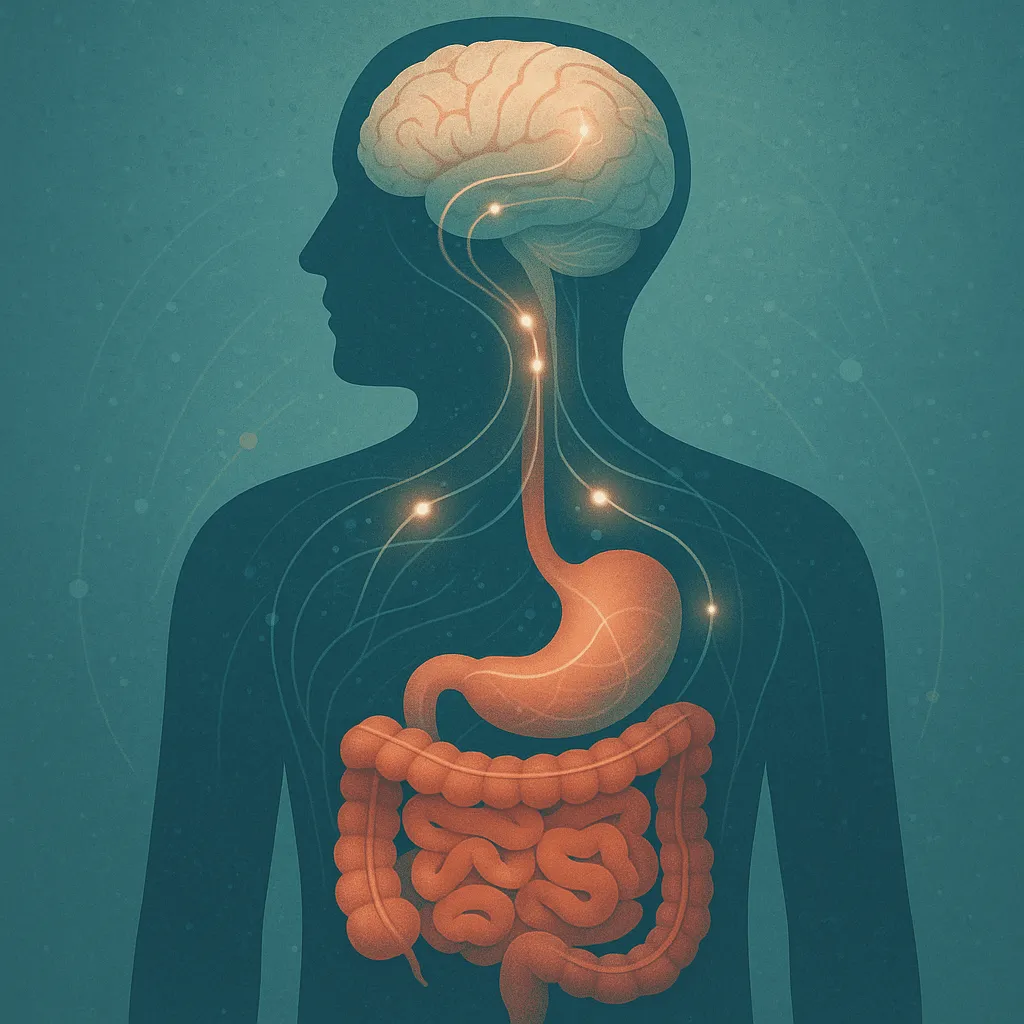
The Hidden Link Between Your Gut and Your Mood and Your Mood

The Hidden Link Between Your Gut and Your Mood
It’s easy to think of digestion and emotions as two separate worlds — one managed by your stomach, the other by your brain. But science now shows they’re deeply intertwined through what’s called the gut-brain connection — a constant, two-way communication system that influences everything from your mood and memory to stress resilience and energy levels.
Learn More About Gut Health and How To Repair It
Your Gut: The “Second Brain”
Inside your digestive tract lives a vast network of over 100 million nerve cells — known as the enteric nervous system. It doesn’t just help control digestion; it also produces and regulates many of the same neurotransmitters your brain uses to control mood.
In fact, around 90% of serotonin — the “feel-good” hormone responsible for happiness, calm, and sleep — is made in the gut, not the brain. When your gut is imbalanced or inflamed, that serotonin production can be disrupted, leaving you more prone to anxiety, irritability, or low mood.
How Gut Imbalance Affects Emotions
When the gut barrier becomes compromised (sometimes called “leaky gut”), harmful bacteria, toxins, and undigested food particles can slip into the bloodstream. Your immune system reacts by triggering inflammation — and that inflammation doesn’t stay in your gut. It can travel throughout the body, even affecting the brain.
Chronic inflammation has been linked to increased risks of depression, fatigue, brain fog, and stress intolerance.
Over time, an unhealthy gut can feel like emotional turbulence that you can’t quite explain — even when “everything looks fine” on the outside.

The Role of the Microbiome
Your gut is home to trillions of microbes — bacteria, fungi, and even viruses — collectively called the gut microbiome.
When balanced, they help digest food, produce vitamins, and protect you from pathogens.
When disrupted (by antibiotics, processed foods, chronic stress, or lack of sleep), they can alter how your brain perceives stress and regulate mood.
Recent studies show that people with depression often have less microbial diversity — meaning fewer types of healthy bacteria. Supporting a balanced microbiome through food, rest, and stress management can naturally help your body regulate both digestion and emotion.
Simple Ways to Support a Healthy Gut–Brain Connection
You don’t need a total life overhaul to start feeling a difference. Small daily shifts can have a big impact:
Eat more fiber-rich, colorful foods. Plants feed good bacteria and reduce inflammation.
Limit processed sugar and alcohol. Both can feed harmful bacteria and destabilize mood.
Practice mindful eating. Slowing down your meals improves digestion and signals safety to your nervous system.
Prioritize sleep. Deep rest allows your microbiome to restore balance overnight.
Move daily. Gentle activity like walking supports healthy digestion and serotonin production.
Manage stress. Meditation, deep breathing, or simply getting outside can lower cortisol levels that damage gut lining.
A Final Thought
When your gut is inflamed, your mood often follows. And when your emotions are calm, your gut usually reflects that peace.
Healing one helps heal the other.
So the next time you notice irritability, fatigue, or brain fog — don’t just look to your mind for answers.
Start with your gut.
It might be quietly asking for care.